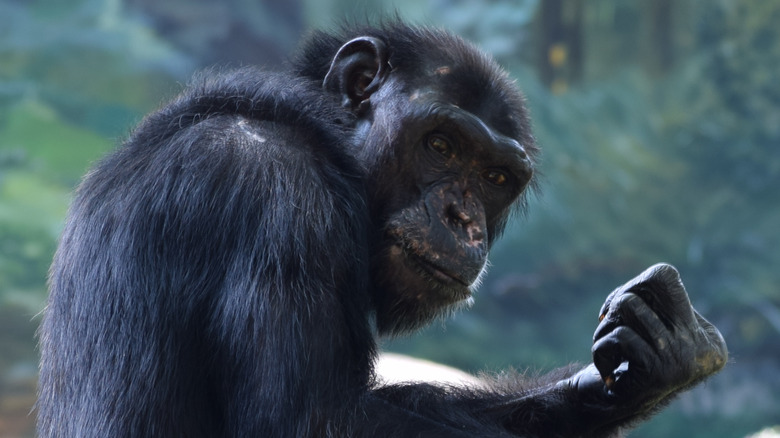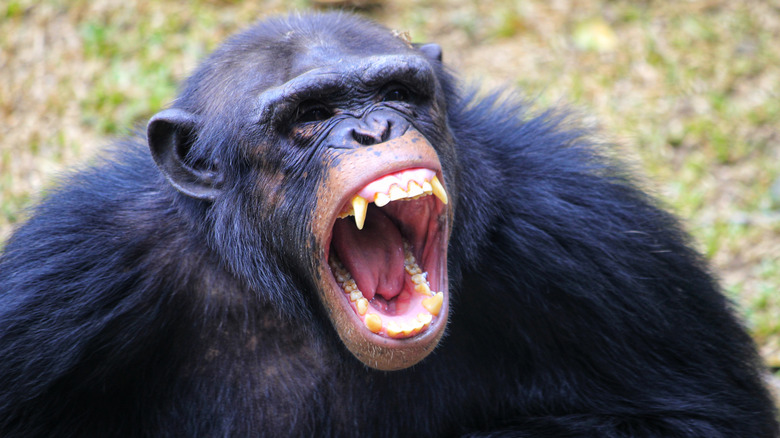The Real Reason Chimps And Gorillas Are Going To War
It's official, folks: the ape-pocalypse has begun. But don't worry, there's no ultra-intelligent chimps riding horses while wielding machine guns. The good news? Humans aren't the target of the current simian brutality. The bad news? We're the likely, sad cause.
Back in February 2019, a posse of 18 chimpanzees jumped a group of five gorillas — one male silverback, three females, and one baby — while rolling through Loango National Park in Gabon along the western coast of Central Africa, as Science Alert says. Researchers who were tracking the animals told Live Science that the gorillas fought back, to the point where the silverback was "really throwing some of the chimps in the air, so he was really trying to protect himself and his group," said Simone Pika, a cognitive biologist at Osnabrück University. In the end, three chimps were injured, but they also captured the baby gorilla and beat it to death. The attack lasted a full 52 minutes.
Things get even more grim from here. Later on, in December 2019, a larger group of 27 chimpanzees, some of whom were involved in the first attack, assaulted a group of seven gorillas (one male silverback, three adult females, one young adult, and two babies). This time, the chimps didn't merely capture a baby gorilla; they ate it. This attack lasted 79 minutes.
Driven to brutality by a lack of food
In both cases, the chimpanzees initiated the assaults. As Live Science says, researchers thought things would go the way they usually go when the species come across each other in the forest: Be peaceful, say hi, and even play around a bit. Instead, they heard the silverback start beating its chest, and the whole thing escalated into full-on assault and killing. The chimps, it turns out, were part of a group of 45 being observed in a study in the region, per CNN. Otherwise, we'd have had no way to know this kind of thing was happening. The February 2019 incident was the first of its type recorded.
What exactly would push the chimps to such bald-faced savagery? The time of the year is a clue: February and December. Fruit, a major part of both chimp and gorilla diets, grows scarce during February and December. Usually chimps and gorillas share resources, but if a group is starving, they apparently might resort to inter-primate quasi-cannibalism. Fruit in Gabon is also growing even more scarce. Why? According to the Live Science report, the answer is manmade climate change. The lowlands gorillas in the region, it should be noted, are an endangered species.
It's well known that chimps can get violent, as chimp attack survivor Charla Nash can attest (on "Today"). It's the organized, coldly cruel nature of the attacks that makes them so disturbing, and also so, so human.

